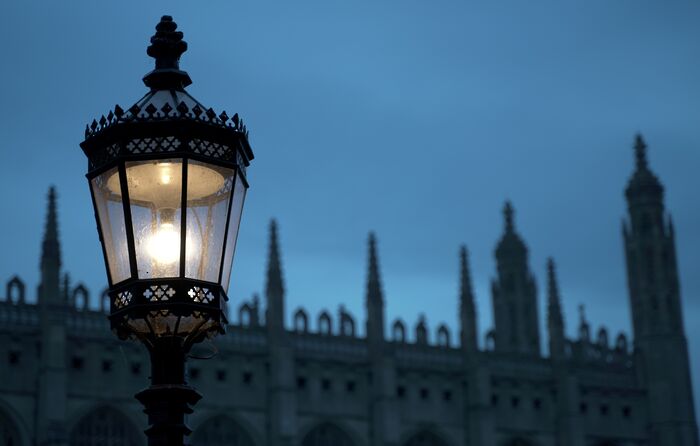Cambridge's Disciplinary Procedure
Cambridge adopts ‘balance of probabilities’, as Regent House votes in favour of changes to disciplinary procedures
70% of votes were cast in favour of moving away from the criminal standard of proof currently required by the University

The University is set to adopt a series of proposed changes to the Student Disciplinary Procedures and adopt the civil standard of proof, also known as the ‘balance of probabilities’, following a Regent House vote held at the end of last month.
At present, Cambridge is one of only a handful of UK universities to use the criminal standard of proof, which requires that student disciplinary cases be proven ‘beyond reasonable doubt’.
This new reform has been the subject of much student campaigning, with CUSU Women’s Campaign (WomCam) having actively campaigned for this shift to the ‘balance of probabilities’ for several years, arguing that the University is not qualified to act as a court of law, and noting that allegations of sexual assault, which often leave little tangible evidence, are highly unlikely to be upheld under proof ‘beyond reasonable doubt’, with perpetrators of sexual assault therefore less likely to face consequences.
The new changes to the Student Disciplinary Procedures will also see intimate partner abuse and online harassment introduced into the disciplinary framework’s definition of ‘abusive behaviour’, and the introduction of a new requirement of training for decision-makers tasked with carrying out the University’s disciplinary procedures. The University will appoint an Investigating Officer to provide ‘specialist knowledge of the complexities of sexual misconduct’ during disciplinary proceedings.
The vote, held between 18th and 28th of June, saw members of Regent House, Cambridge’s primary governing body, respond to two separate ballots. The first ballot, regarding the new student disciplinary framework saw 546 votes in favour of the new framework, and 142 against. The second ballot, regarding the adoption of the civil standard of proof, was also securely won by those in favour of the proposed change: 474 votes, out of a total of 677, were cast in favour of adopting the balance of probabilities.
Writing on Twitter, CUSU Women’s Officer Claire Sosienski Smith described the new reforms as a victory for WomCam “who put ending harassment at [Cambridge] firmly onto the agenda” and for “all the student campaigners, women’s officers and members of WomCam who held the university to account.” CUSU described the reforms as “a fantastic win for students”.
In May, it was revealed that 88% of student respondents to the University’s consultation on the proposed changes to the disciplinary procedures supported the adoption of the ‘balance of probabilities’. In the Regent House ballot, 70% of the votes cast favoured adopting this civil standard of proof.
Following last February’s consultative period, the Review Committee on Discipline sought external legal counsel regarding the proposed changes, which concluded that it was lawful for the University to adopt the civil standard of proof, and to investigate instances of serious sexual misconduct itself.
The Review Committee first convened in May 2018 to discuss the Student Disciplinary Procedures in relation to instances of sexual misconduct. Its recommended changes to the procedures, and proposed move to the civil standard of proof, were first put to review by members of the University between May and June of 2018.
This included a Senate House discussion on 1st May 2018, which was repeated this year with a discussion held on 21st May. On both these occasions, CUSU Women’s Campaign tied purple ribbons to the gates of Senate House in support of the changes, specifically highlighting their support for the adoption of the civil standard of proof.
If you are affected by any of the issues raised in this article, the following organisations provide support and resources:
- Breaking the Silence: the University’s campaign against harassment and sexual misconduct (includes reporting mechanisms).
- Sexual Assault and Harassment Adviser: specialist University support worker who provides emotional and practical support
- Cambridge for Consent: a student-run campaign to promote consent.
- Cambridge Rape Crisis Centre: a charity for female victims of sexual violence.
- Cambridge Nightline: a confidential night-time listening service.
- Students’ Unions’ Advice Service: the Students’ Unions’ confidential, independent and impartial advice service.
 News / Lord Mandelson visits University30 June 2025
News / Lord Mandelson visits University30 June 2025 Comment / Why shouldn’t we share our libraries with A-level students?25 June 2025
Comment / Why shouldn’t we share our libraries with A-level students?25 June 2025 News / Academics lead campaign against Lord Browne Chancellor bid2 July 2025
News / Academics lead campaign against Lord Browne Chancellor bid2 July 2025 Features / 3am in Cambridge25 June 2025
Features / 3am in Cambridge25 June 2025 News / John’s students call on College to divest1 July 2025
News / John’s students call on College to divest1 July 2025










